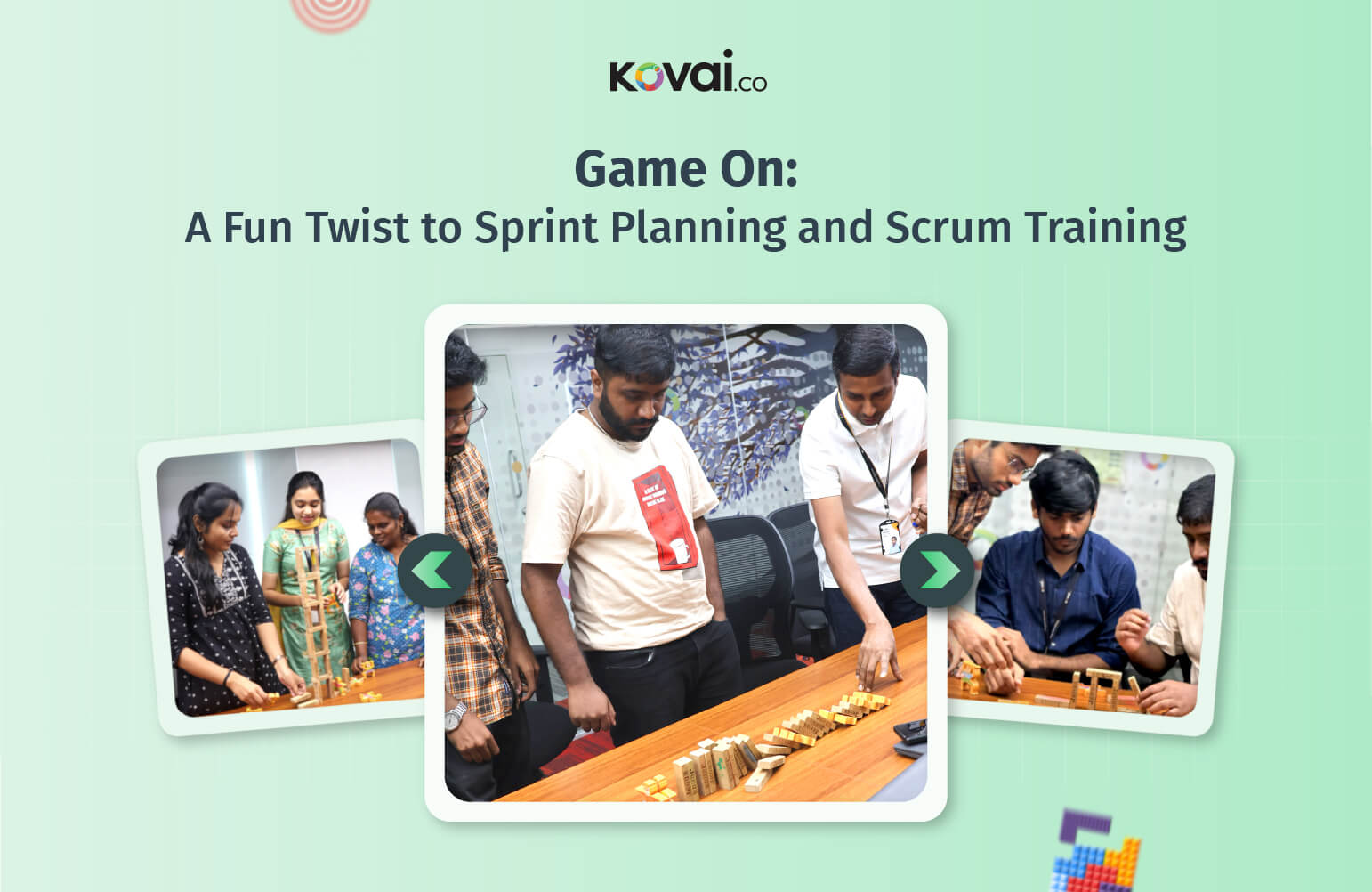Agile project management is widely used in the software industry, promoting a flexible and iterative approach to software development. It is guided by four key principles: valuing individuals and interactions over processes and tools, delivering working software over comprehensive documentation, prioritizing customer collaboration over contract negotiation, and responding to change over following a fixed plan.
One of the most common Agile frameworks is Scrum, which provides a structured way for teams to work efficiently. In Scrum, teams follow a structured approach: Daily Standups to discuss tasks and blockers, Sprint Planning and Retrospectives every two weeks, and Showcase where teams present a demo to show their progress and new learnings.
While these sessions help teams stay aligned, they often feel like routine meetings. But the Data Science team at Kovai.co decided to take a different approach—by introducing games into their Scrum process.
Bringing Games into Scrum
Led by Selvaraaju Murugesan, Head of Data Science, the team started experimenting with games during sprint planning and training sessions.
Earlier, these sessions were like a checklist. Team members did not always understand why Agile principles mattered.
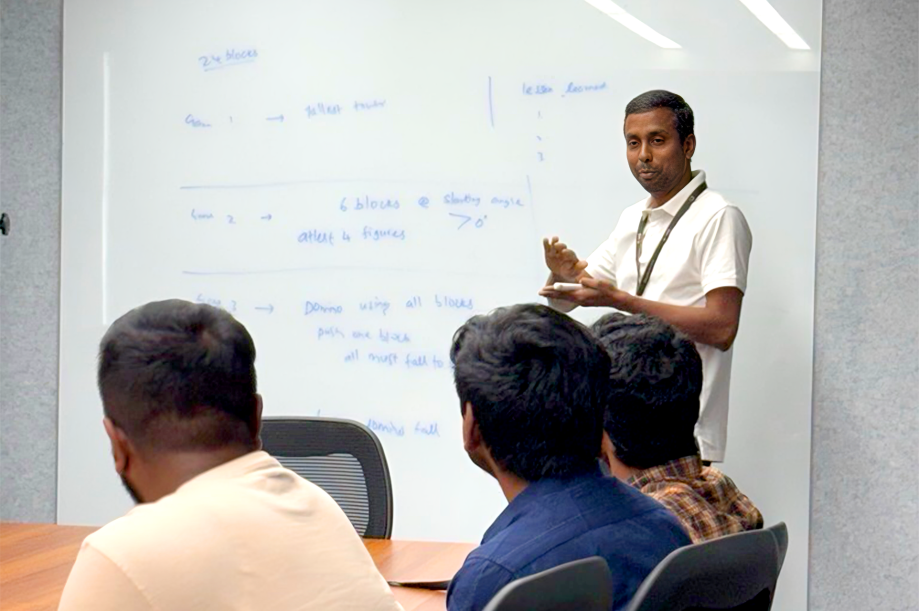
To change this, Selvaraaju designed interactive games that make learning Scrum principles fun and engaging.
The initiative has been running for nearly eight to nine sprint cycles, incorporating games using Jenga blocks, Lego, playing cards, shapes, and play dough. The idea is simple—teams play structured games that reflect Agile principles, making the connection between theory and real-world tasks easier to understand.
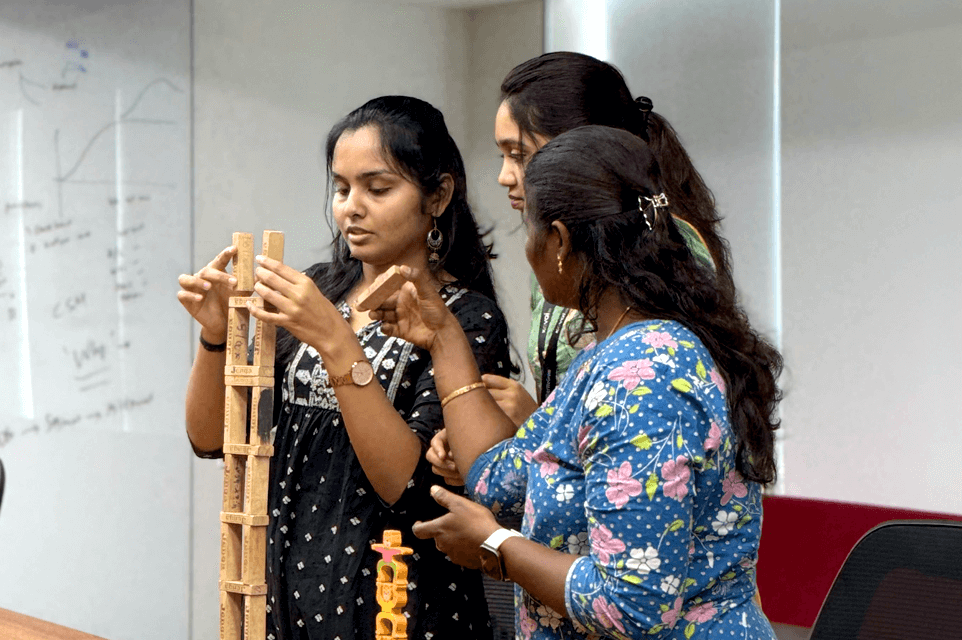
The Game Structure
Each game is linked to a key Agile principle. Eight team members are shuffled regularly amongst themselves to encourage collaboration. The games follow three levels:
- Level 1: Understanding the game with no predefined requirements.
- Level 2: Teams work with specific requirements and limited resources.
- Level 3: A high-pressure round with spontaneous tasks and constraints.
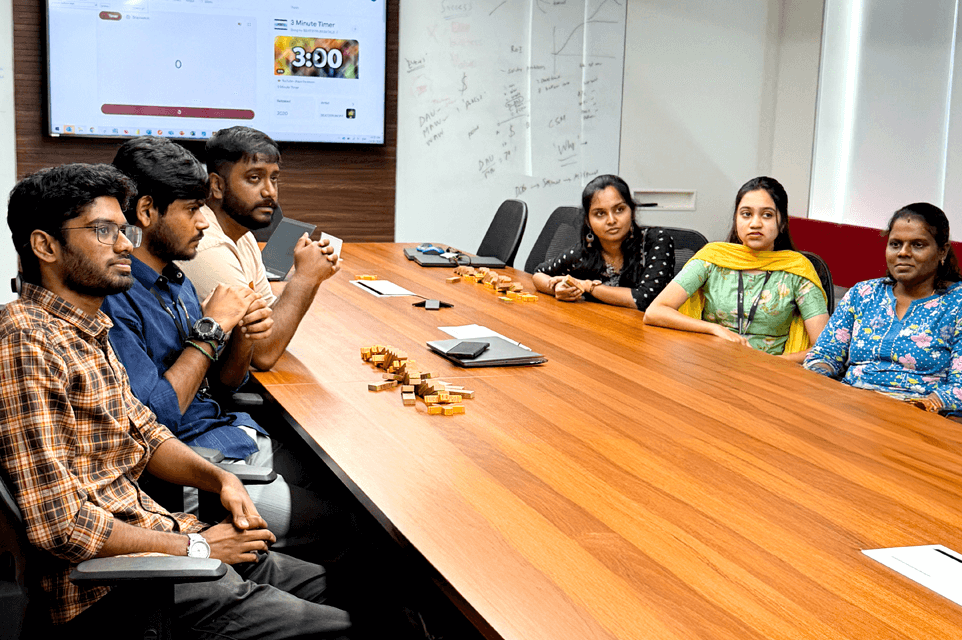
After each game, teams reflect on their experience—what worked, what went wrong, and how they can apply the learnings to their daily work. This is followed by Sprint Planning and Retrospectives, where they analyse the past work and plan for the next series of activities.
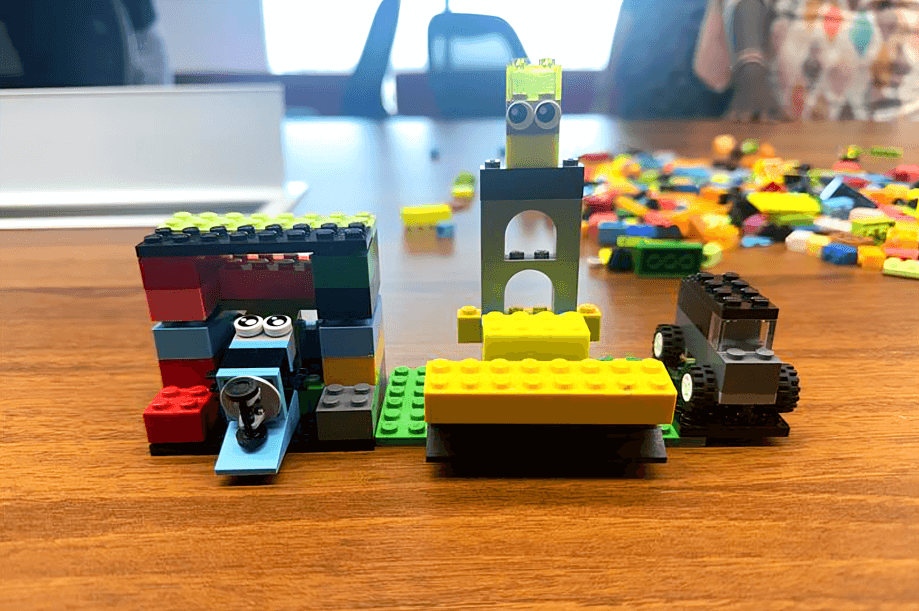
Sailesh Sivan, Data Analyst says,
The lessons hit differently when you experience them firsthand. Among all the games, the Lego challenge was my favourite. It taught me how to work efficiently with minimal resources.
A New Way to Learn and Collaborate
Beyond making Scrum training more engaging, the games foster teamwork and creativity. Pavithira Rajendran, Senior Data Scientist, shares,
Before we introduced these games, our Sprint Planning and Scrum training felt like routine discussions. The hands-on nature of these sessions along with games keeps us engaged and helps spark new ideas for solving challenges in our projects.
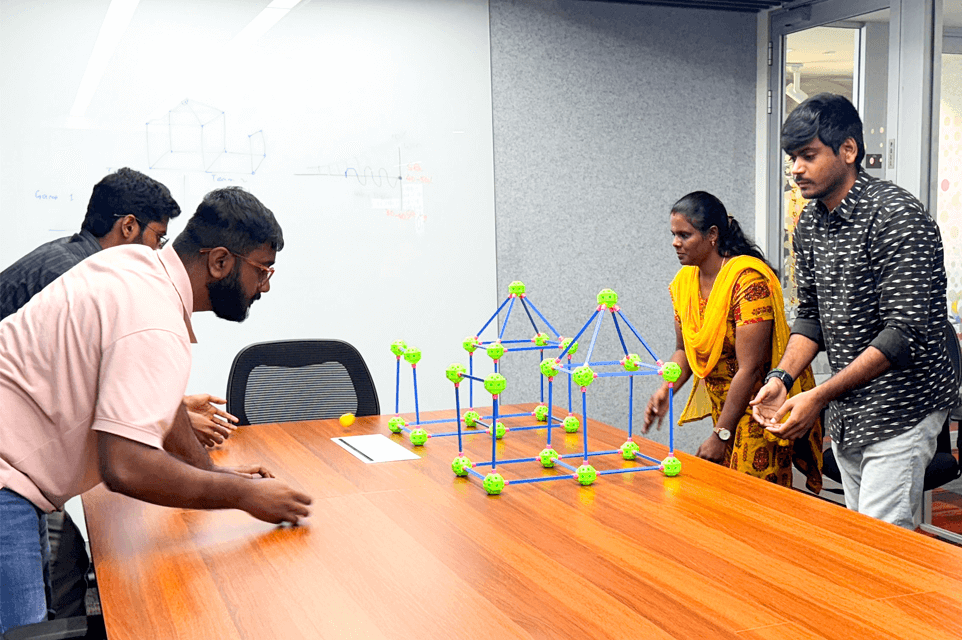
For new team members, the games provide an easy introduction to Scrum. Sriharan Thirumurithi, a Data Science Intern, adds,
These sessions make our Mondays feel enthusiastic, fun, and filled with curiosity about the games. As someone new to the corporate world, understanding Scrum and Agile workflows felt overwhelming at first. But these game-based training made it easy to relate the concepts to my actual work!
Making Scrum More Practical
The structured yet playful approach has led to better engagement.
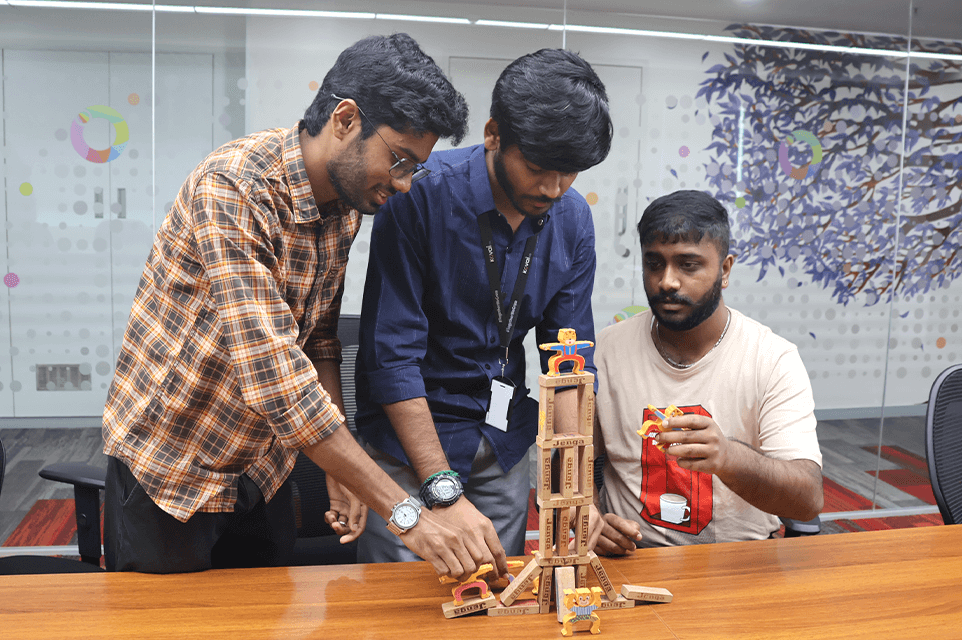
Surya Murugan, Associate Data Analyst, says,
Through these games we get to learn a lot more about time management and task optimization.
With this initiative, the Data Science team has redefined how Sprint Planning and Scrum training are conducted. By gamifying the learning process, they have made Agile more interactive, engaging, and impactful.
Conclusion
Scrum training does not have to be a dull knowledge transfer session. The Data Science team’s gaming approach proves that learning can be both fun and effective. Through creative challenges and teamwork, they are not just playing games—they are building a stronger, more agile team.

